Bisexual Awareness Week, an annual celebration held to celebrate bi identities, just got over on 23rd September. Three years ago, I didn’t know this week existed. Three years ago, I didn’t believe I existed. Labels have always helped me find structure, they helped me organise my experiences and map my sense of who I am by tagging them carefully in the whimsical aisles of my neurodivergent brain. Just like the tag of neurodivergence helped me locate my experience and made me feel like I belonged my bisexual identity, too, was an organic discovery—a label that fit like Cinderella’s glass shoes.

There are other labels, that feel like distant gods that need to be appeased. Some rite of initiation must be passed to earn the right to it. That is how it is with me and the label of “queer”. I could repeat all the statistics about the bisexual community, the plethora of mental health concerns that haunt them and how a bisexual person is more likely to struggle with mood disorders, depression and/or substance abuse. I could talk about how impostor syndrome is something almost all the bisexual folks I know have grappled with. Here, I attempt to relate my story; of scoffing, owning, and questioning the word: bisexuality.
My casual relationship with the term “bisexual”
After years of being in a co-ed school, where my intense passions for the opposite gender garnered gossip within my peer circles, my intense “friendships” with girls would merely draw cute ‘aww‘s. It took me the rude shift into an all-girls’ school to first wonder about the word “bisexuality”. I remembered—from my co-educational training—friends speaking in scandalous whispers about lesbians and homosexuals, and how one of my macho friends had valiantly “caught” a couple of boys being “sissies” with each other.
However, “bisexuality” didn’t seem as “real”. It was as if it was an afterthought, a derivative from the ethos of “homosexuality”.
Even if through a lens of homophobia, in my early adolescence, I saw these words as distinct real things. However, “bisexuality” didn’t seem as “real”. It was as if it was an afterthought, a derivative from the ethos of “homosexuality”. Unimpressed, I stowed “bisexuality” away in the closet.
In college, when queer literary figures like Woolf, Wilde and Dickinson swam into my consciousness, I brought out the word, and tried it on when no one was looking. In drunken sessions with friends, I would throw the word out, like a party trick. I got into a casual relationship with “bisexuality”, as we both knew it was not a real thing. At best, it was a personality quirk that provided a distraction from the depressed fog that was my college years. It wasn’t until I fell head over heels for a “good friend”, that “bisexuality” landed a very resounding slap on my face.
Coming out as a “cis-passing” bisexual person
Only years down the line (and with a little, or a lot, of help from my therapist!), would I realise how ignoring the “bisexual” in me was causing intense anxiety and depression. It is true that coming out can be an act of self-assertion, a defiant resistance of invisibility. However, in coming out, there are also expectations of one being seen for they are. Coming out as a bisexual person was a middling experience at best, as my closest friends already knew. Some heart-reacted my candid post on social media, but most, I suspect, scrolled past.
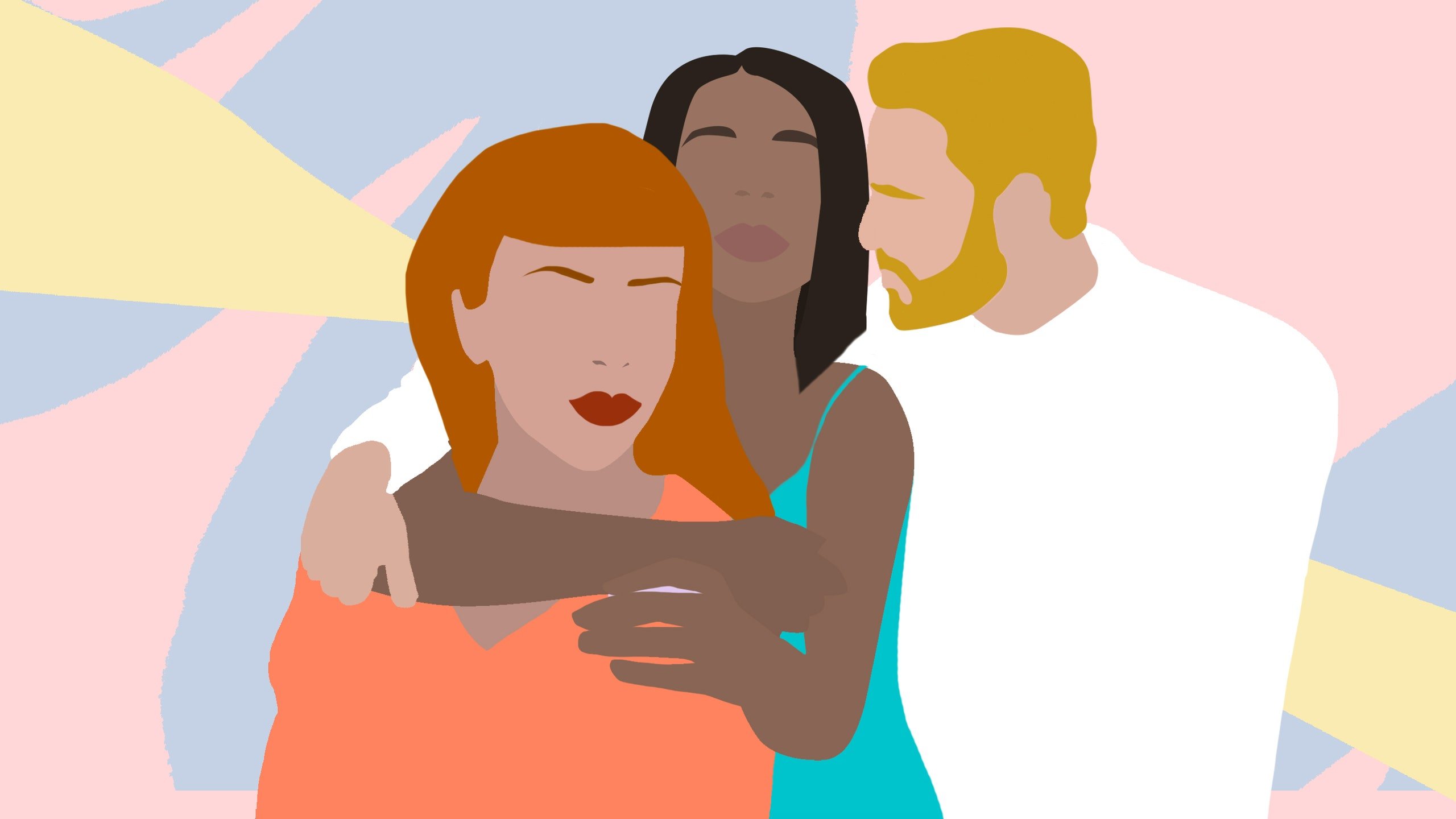
This is where being “cis-passing“—especially if one has a partner from a different gender—hangs over the head of a bisexual person as a double-edged sword. If you look more or less like them, you might not attract the vicious phobia and violence of the heteronormative crowd. And yet, if you look more or less like them, it is easier for the heteronormative crowd to disappear and/or mute your sexuality. For bisexual folx, coming out is a lifelong process. My sexuality will always be assumed based on the partner I am seen with, which would mean I am either taken for a heterosexual or a lesbian. It can lead to anxiety and panic when going into new social environments. Conversely, the need to be seen can trigger further need for queer acknowledgement in most bisexual/pansexual people.
It wasn’t until I tried coming out to my family, that I sampled biphobia, real-time. For the longest time, I believed my mother was “chill” with my sexuality—I had let her on about it in the rebellious rage of my early twenties—only to realise she was happy to ignore my bisexuality given my pattern of mostly choosing cis-het male partners. Or how older cousins would patronise my declaration of my sexuality with a benign smile, that barely hid their ‘it’s just a phase!‘ retort.
Biphobia makes it hard to claim queer spaces
While I’ve flown into righteous indignation explaining to heterosexual people how my sexuality is real and valid, I feel much more subdued in queer spaces. For the longest time, I’ve wanted the safe space that a queer community brings. Yet, the constant second-guessing of my sexuality can make it harder to reach out. Especially, comparisons with more visibly queer people lead many bi people to mistake coming out as a need to perform queerness. It made me believe that there are “queer milestones” that one must tick off to qualify for queerness, like having a local circle of queer friends, and/or a queer partner.
Especially, comparisons with more visibly queer people lead many bi people to mistake coming out as a need to perform queerness.
I had neither. I had heard stories about bisexual people being written off within LGBTQ communities. To be fair, I had personally never really faced biphobia within the community—except that one match on an online dating platform whose interest fizzled out when I revealed I wasn’t a lesbian. Self-doubt was such a natural state of being, that it took me a while to catch myself questioning and comparing the quality and timbre of my attractions to differing genders. Queer awakening and coming out aside, what did I have to “show” for it? Technically, I had only ever dated cis-het men.
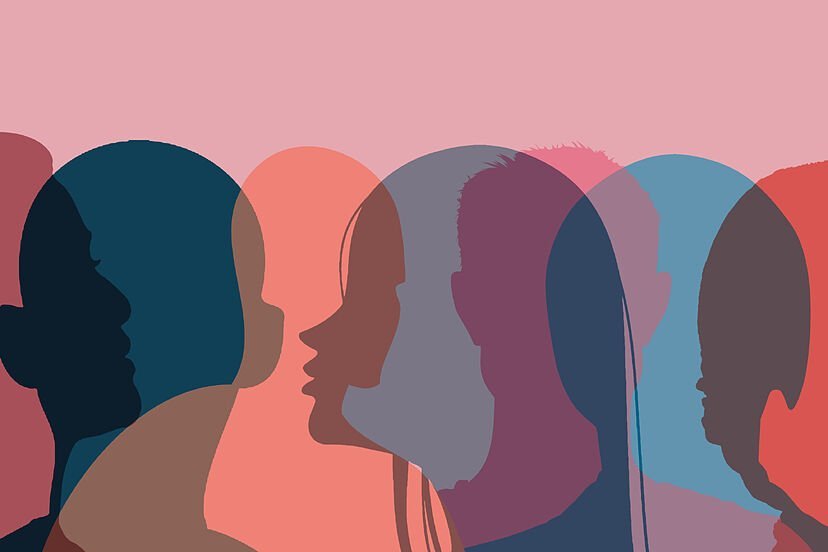
All of this meant that despite feeling passionately about queer rights, I kept my interactions with queer spaces to a bare minimum. While I had an online community of queer friends, it was exactly a year ago that I pushed past the impostor syndrome, and reached out to the local community. During coming out, I wasn’t quite as bothered about queerphobic relatives, as I was about staking claim to a community, I wasn’t sure I belonged to.
Bi erasure creates a “double closet”
Often while trying to assert my queer identity, I stumble upon a moment’s hesitation. Every time I fill a form, where I mention the fact of being “queer” or “non-binary”, the voice inside my head wonders, ‘Shouldn’t I vacate this space for someone who is more worthy of it?‘ Therefore, when I heard about the “double closet” phenomenon—where bisexuals not only worry about the queerphobia of a heteropatriarchal world but also being faced with a queer community that invalidates their existence—it made my bones rattle with recognition. The shame and anxiety that arise out of disappearing bisexual realities further alienate and keep us from accessing the resources of queer communities.
The shame and anxiety that arise out of disappearing bisexual realities further alienate and keep us from accessing the resources of queer communities.
Media too has played its part in adding to the culture of biphobia and bi erasure. Let alone the exaggerated promiscuity of bisexual people in mainstream media, even in spaces where nuance is expected, hackneyed tropes around bisexuality can be found. Take the last few films Rituparno Ghosh acted in- in multiple films their character was poised opposite a bisexual partner—Jisshu Sengupta in Chitrangada: The Crowning Wish (2012) and Indraneil Sengupta in Arekti Premer Golpo (2010)—who vacillated between them and their opposite gender partner.

In hindsight, the teenage angst I radiated, of feeling like an outsider, makes a lot of sense. The internalised biphobia secluded me from both within and without queer spaces for the longest time. Even now, going to a queer social event can cause feelings of anxiety and panic. More often than not, I ask a queer friend or my partner to accompany me. I remember going to a Pride meeting earlier this year, where I tried to downplay the presence of my very cis-het male partner.
Glimmer of hope for bisexual folx
All is not doom and gloom, though. Online communities have helped me find a lot of queer folks with lived experiences, that are similar to mine. I’ve found kinship in my local spaces as well, in warm and accepting queer friends. Who knew going on double dates with my queer friends could be so validating?
Bisexual celebrities on social media have been my cocoons of safety through many a night of existential crisis. Icons like Lilly Singh, Evan Rachel Wood and Lady Gaga using their voice on social media to speak about biphobia have been benchmark cultural moments of affirmation for me. Representation of bisexual folx on pop media has also evolved gradually. Only a few years earlier, did I come across Stephanie Beatriz’s frank rendition of a bisexual in Brooklyn Nine-Nine (2013-2021). Much more recently I was completely knocked off with Kit Connor’s poignant performance of grappling with his bisexuality in Heartstopper (2022-).
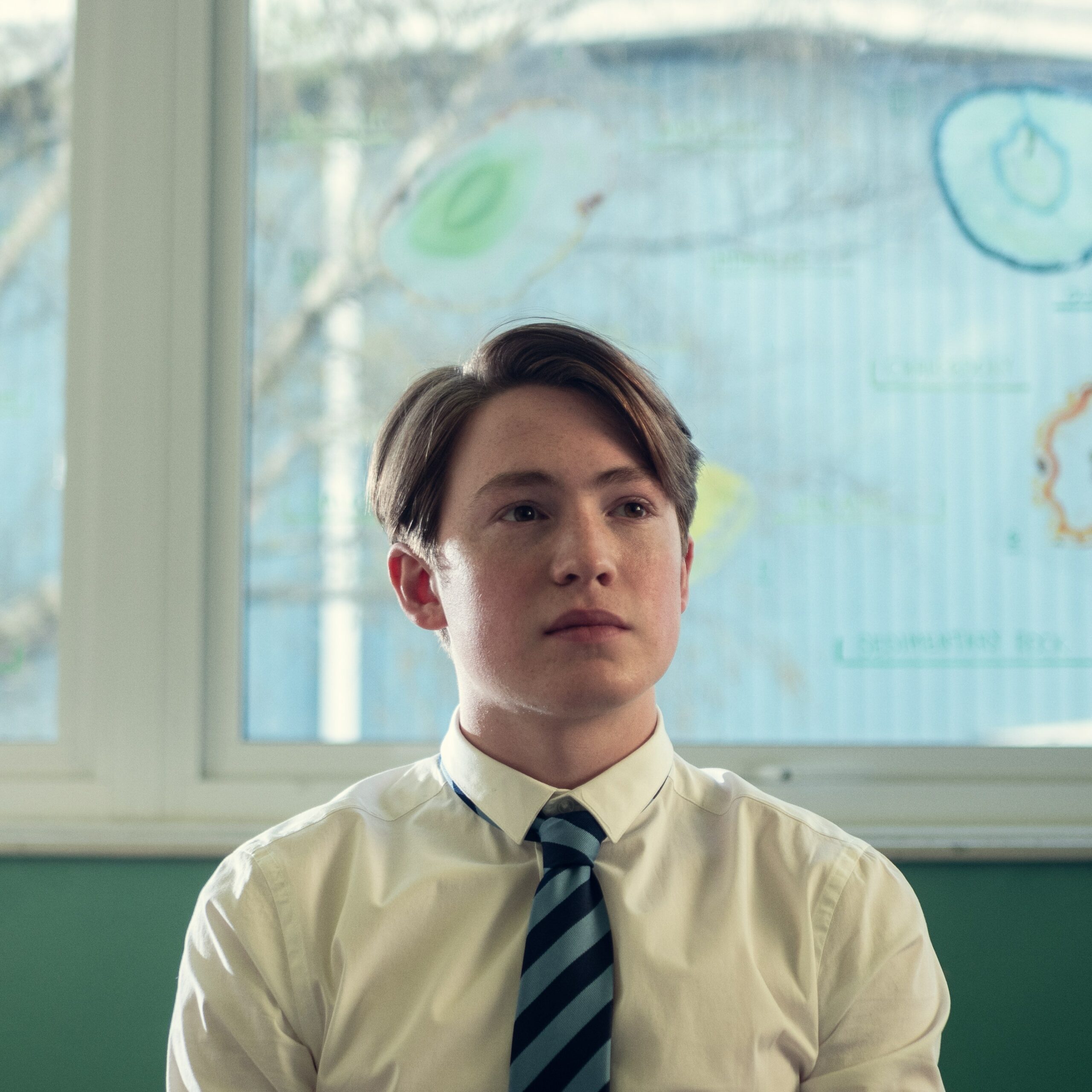
As I try to exist in queer spaces, I’m coming to terms with the unique challenges biphobia and bi erasure pose which leads bisexual people to have this unique need for queer affirmation. I am excited to see how queer communities could expand to hold space for the unique brilliance that bisexual folx bring.
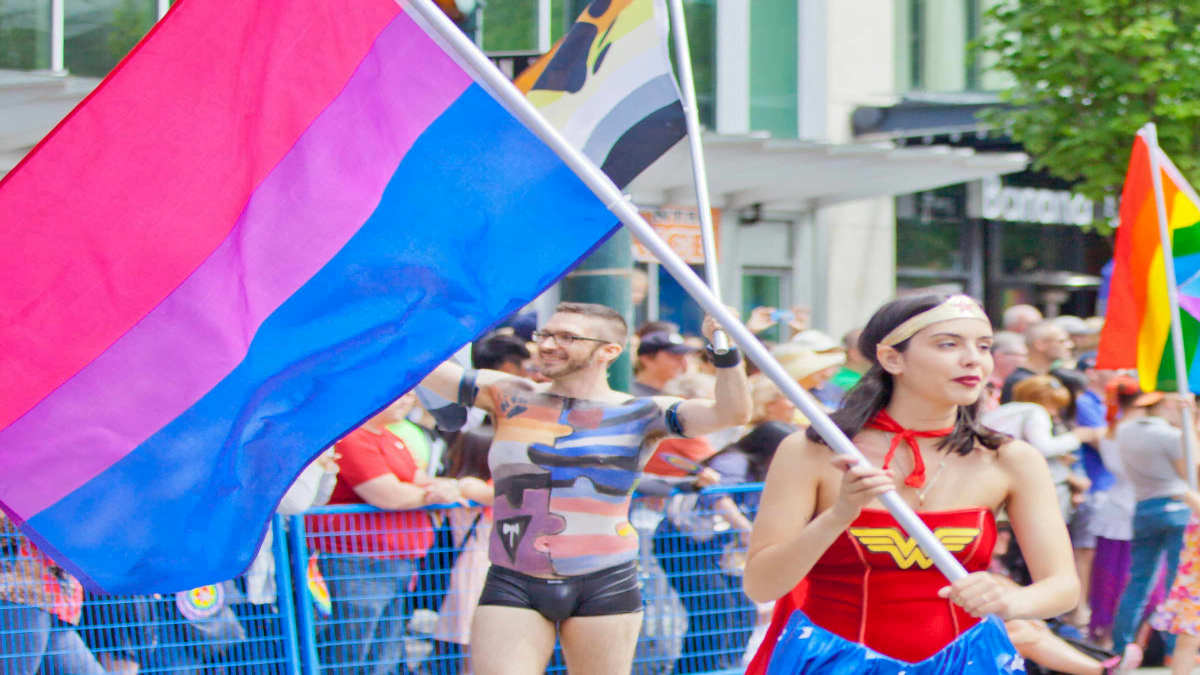



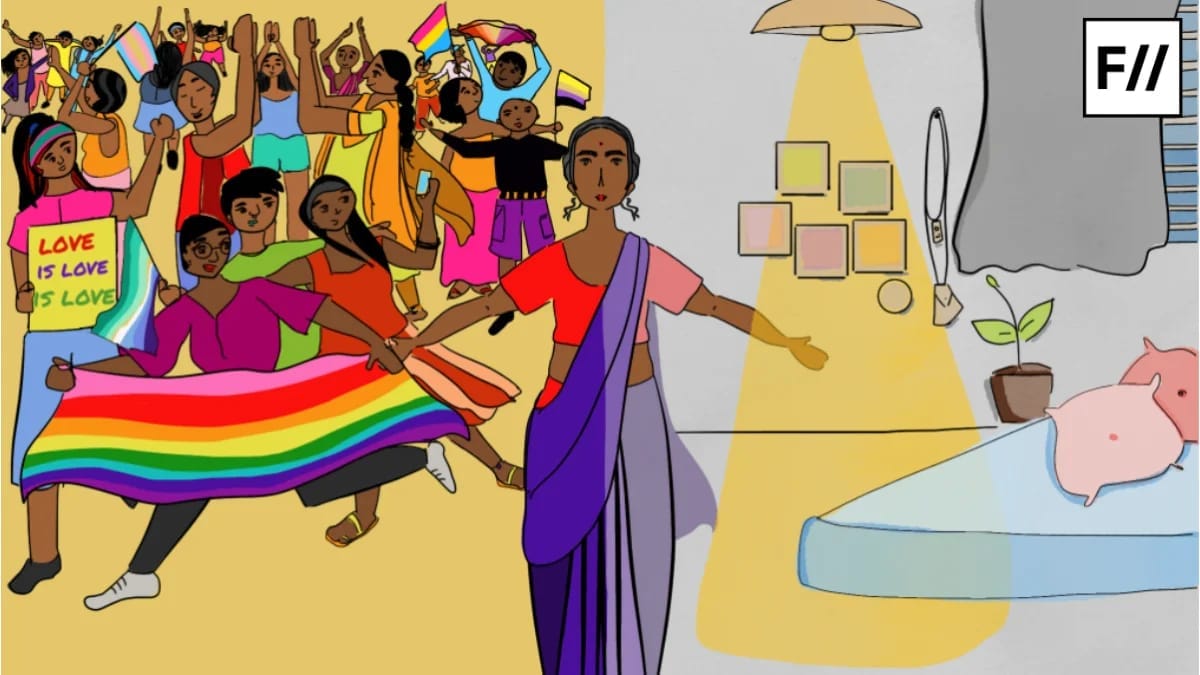

It is only my personal experience of growing up as an alienated bi who is deliberately reviled from the binary world that piqued me to pursue my PhD on space and loneliness of closeted bisexual men. Bisexuality is like a rainbow in its unique sublime quintessential form that enables me to paint my fluidity in my own way.